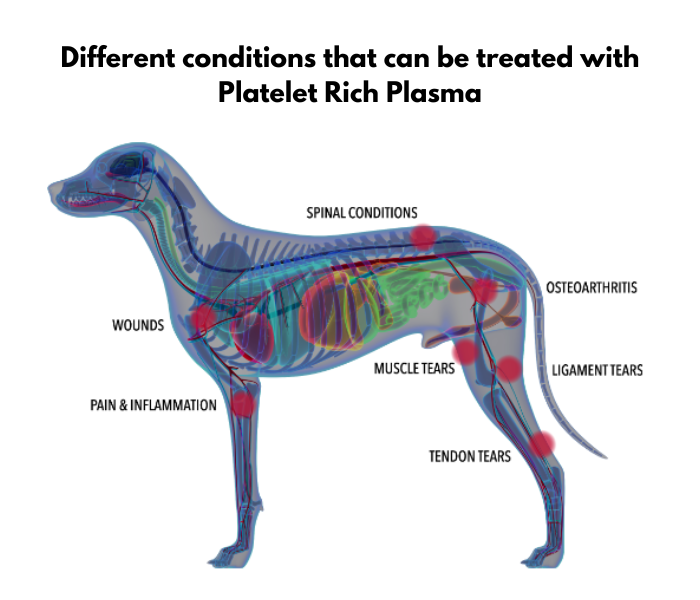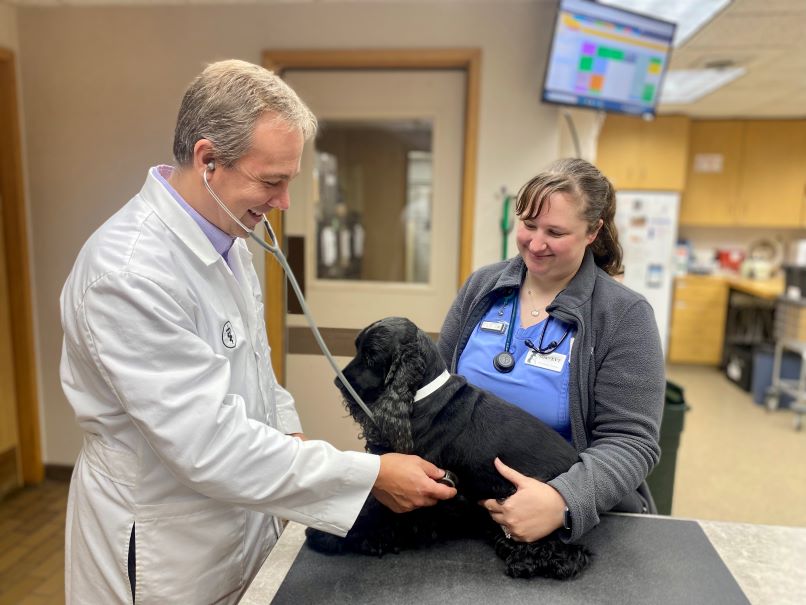Exploring Platelet-Rich Plasma Therapy for Pets
In the ever-evolving field of veterinary medicine, innovative treatments are constantly emerging to enhance the well-being of our furry friends. One such groundbreaking therapy gaining attention is Platelet-Rich Plasma (PRP) therapy.
 To shed light on this cutting-edge technique, we turn to the insights of CHFA’s Dr. Greg Paplawsky, DVM, a seasoned veterinarian who has been utilizing PRP therapy to address musculoskeletal issues in pets.
To shed light on this cutting-edge technique, we turn to the insights of CHFA’s Dr. Greg Paplawsky, DVM, a seasoned veterinarian who has been utilizing PRP therapy to address musculoskeletal issues in pets.
Platelet-Rich Plasma therapy (PRP) is a regenerative treatment that harnesses the healing power of the body's own platelets and growth factors. Dr. Paplawsky explains, "PRP uses the body's own platelets and growth factors to help with healing and inflammation."
This revolutionary therapy isn't a one-size-fits-all solution, but rather a targeted approach for specific conditions. Dr. Paplawsky states, "PRP can be used to treat chronic and painful musculoskeletal conditions such as arthritis, muscle strains, and ligament damage."
 Delving into the mechanics of PRP therapy, Dr. Paplawsky outlines the process: "PRP works by concentrating the patient's own platelets and growth factors, which are then injected into the area of need." The procedure involves sedation, a blood sample, and a meticulous centrifugation process to isolate platelets and growth factors. Paplawsky reassures pet owners, "The patient then recovers and can go home the same day."
Delving into the mechanics of PRP therapy, Dr. Paplawsky outlines the process: "PRP works by concentrating the patient's own platelets and growth factors, which are then injected into the area of need." The procedure involves sedation, a blood sample, and a meticulous centrifugation process to isolate platelets and growth factors. Paplawsky reassures pet owners, "The patient then recovers and can go home the same day."
When asked about the range of conditions in pets that can be addressed with PRP therapy, Dr. Paplawsky emphasizes musculoskeletal issues as the primary focus.
A key advantage of PRP therapy is its safety profile. Dr. Paplawsky notes, "Since we are using the pet's own cells, there are no side effects from the treatment except tiredness from the sedation and some joint soreness from the injection." The recovery period is relatively short, lasting about 24-48 hours, making it a feasible option for concerned pet owners.Dr. Paplawsky reveals, "The injection lasts anywhere from 6-9 months," underlining the sustained benefits of this therapy.
Despite being a relatively new addition to their toolkit, Cascade Hospital for Animals has been utilizing Platelet-Rich Plasma therapy since September. Dr. Paplawsky expresses enthusiasm for its potential, stating, "It is a new complementary way to help pets with arthritis or injuries."
As veterinary medicine continues to advance, PRP therapy stands out as a promising avenue for addressing musculoskeletal issues in pets. Dr. Paplawsky’s insights shed light on the effectiveness and safety of this innovative treatment, offering hope and healing to our beloved furry companions.
If you would like more information to see if Platelet-Rich Plasma therapy may be a good option for your pet in West Michigan, please contact us today!



